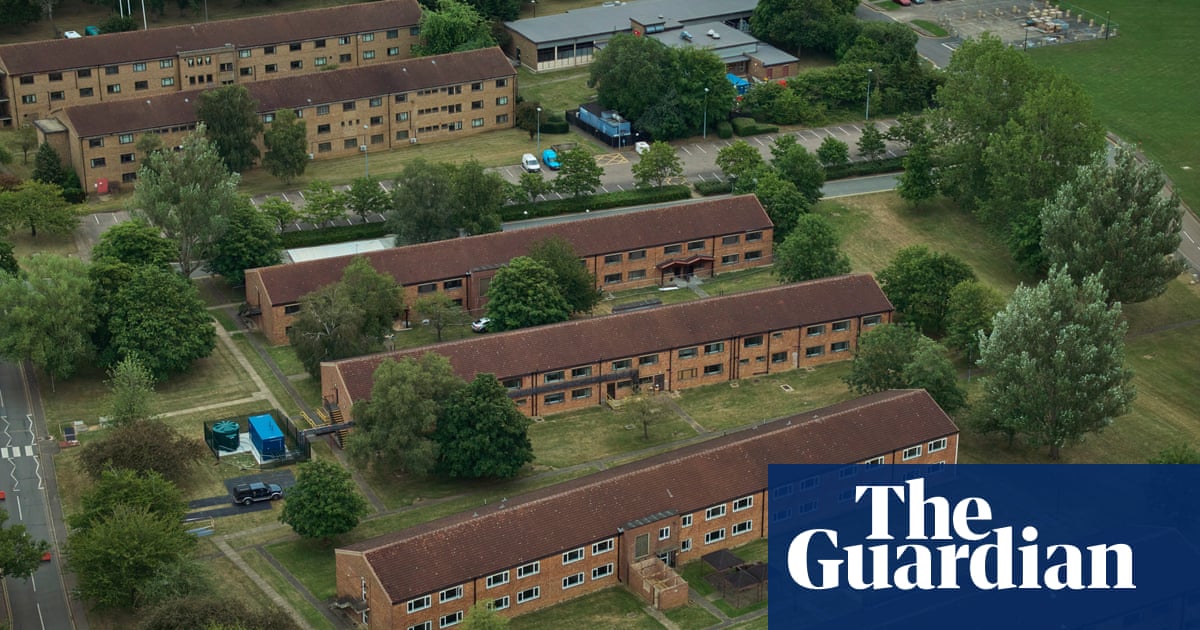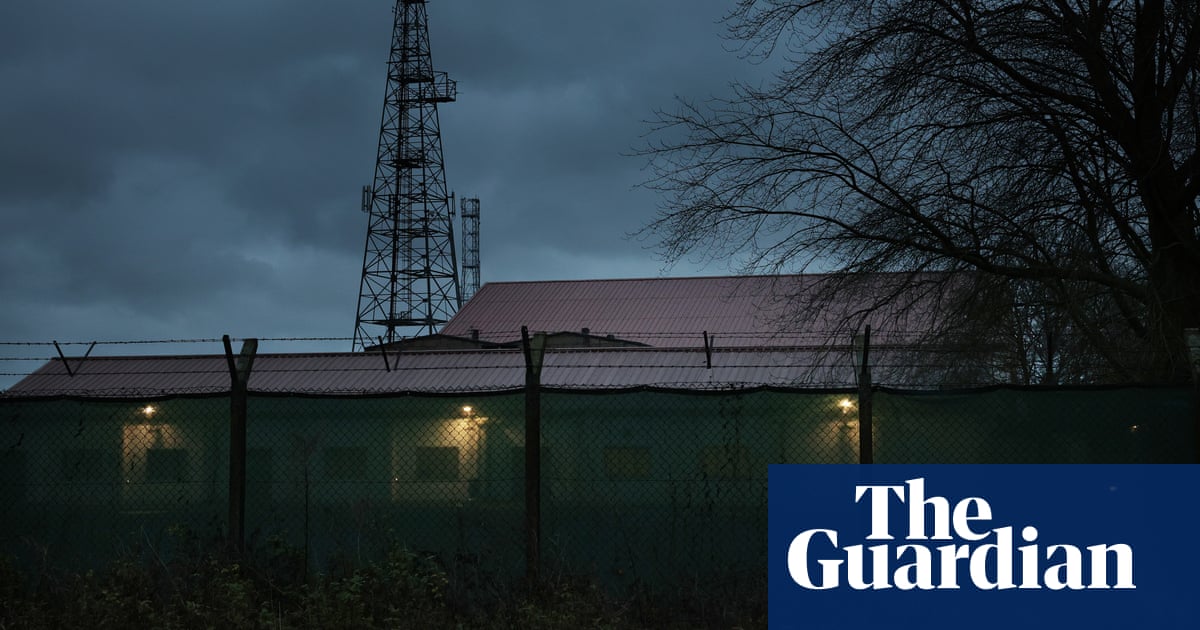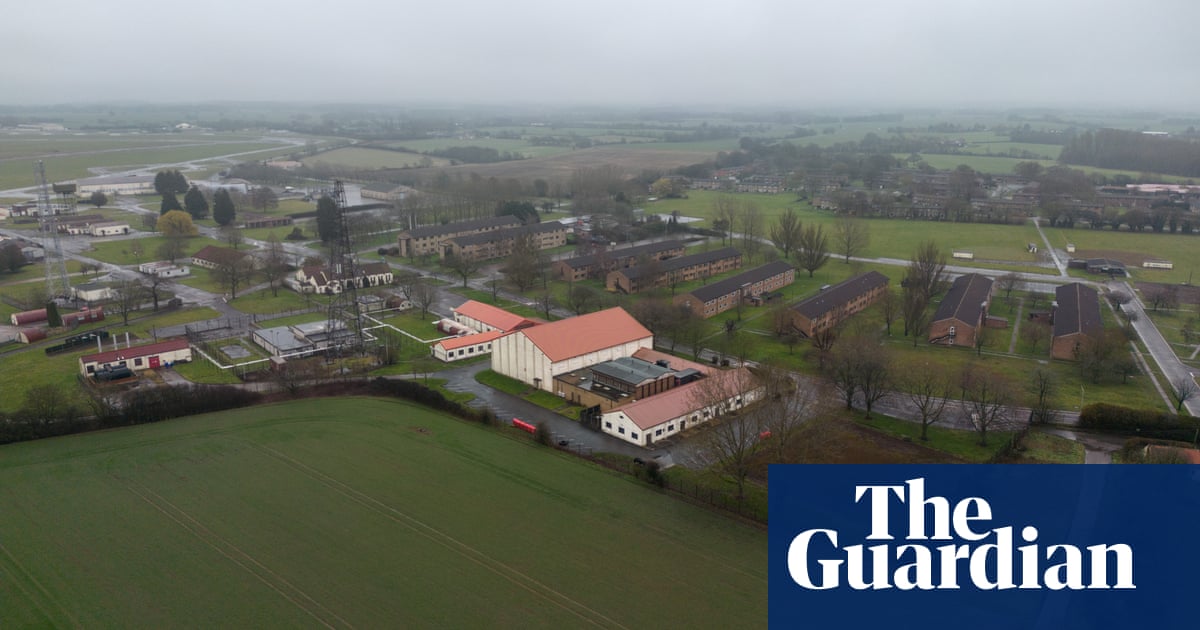
Increasing numbers of asylum seekers housed in a former military base are attempting suicide, self-harming and refusing to eat as conditions worsen, a new report has warned.
Tensions have been rising at Wethersfield in Essex, where about 600 men have been left “with little to do and growing feelings of desperation”, claims the Helen Bamber Foundation, a human rights charity.
None of the asylum seekers living there is known to have had an interview or any decision on their claims. The report said the Home Office’s operation to detain migrants for Rwanda flights earlier this year sparked fresh fear and uncertainty.
A torture survivor who has been in Wethersfield for more than four months told charity workers: “This place is like a prison. Our freedom is limited here. We can only leave using the buses. There are regular fights and because of that I stay in my room most of the time.” Another resident said: “I can’t sleep, I stay awake all night. I have nightmares about ending my life.”
Fourteen incidents of attempted suicide and four of self-harm were reported to the Humans for Rights Network between January and May.
Prof Cornelius Katona, honorary medical director at the foundation, said: “It’s likely that more people will become more distressed, there will be more people whose existing mental health conditions deteriorate, and more who develop suicidal thinking and may act on it. All of the issues that we’ve seen are already getting worse.”
The Home Office used “emergency” powers to develop Wethersfield, a former RAF station, into asylum accommodation in March 2023 as part of a programme of large sites ministers claimed would be cheaper than hotels.A National Audit Office report found that a projected set-up cost of £5m rose to £49m, the government’s original plan to house 1,700 asylum seekers there is now capped at 800.
In the first few months of its operation, torture survivors and people with serious health conditions were moved out because the Home Office felt the large site was unsuitable for them. But the policy was changed in February to increase the threshold for a person to be deemed unsuitable, with an “individual evaluation” required. Onsite medical staff are now barred from recommending transfer.
“This appears to have been intended to reduce the number of legal challenges being brought, rather than based on any assessment of the impact it would have on men moved there,” the foundation’s report claims.The charity found overcrowding, room sharing, a lack of activities and Wethersfield’s remote location were driving increased tensions among residentsSome have reported the formation of gangs and fights breaking out, causing some asylum seekers to confine themselves to their rooms because of safety fears.
In February, 12 referrals were made to the Home Office safeguarding team about people in Wethersfield not eating. The reasons were not officially recorded, but Katona said they could include fear, mental health problems or potential hunger strikes.
“The underlying problem is that the accommodation is intrinsically unsuitable for vulnerable people, and particularly survivors of torture and trafficking,” he added.
“The longer people have been there, the longer it will take to recover from the damage caused.”
A man once detained by a militia in Libya described being “re-traumatised” in Wethersfield, adding: “I am treated like a subhuman. I feel depressed and my mental health isn’t in the right place. I expected to get basic human rights in the UK and unfortunately I have none.”
The foundation said it had received no response to requests to the Home Office for clinical teams to visit, despite a minister dismissing the findings of a report it published in December because there had been no “visit of the site to gain first-hand experience/evidence/knowledge”.
The Home Office said: “We take the safety and welfare of those at Wethersfield extremely seriously. Welfare officers are on site round the clock and all residents have access to an on-site GP service delivered by a local healthcare provider including mental health support. A 24/7 helpline provided by Migrant Help is available to raise any concerns.
“ No one will be placed in accommodation if there is sufficient evidence their needs cannot be met there.”












